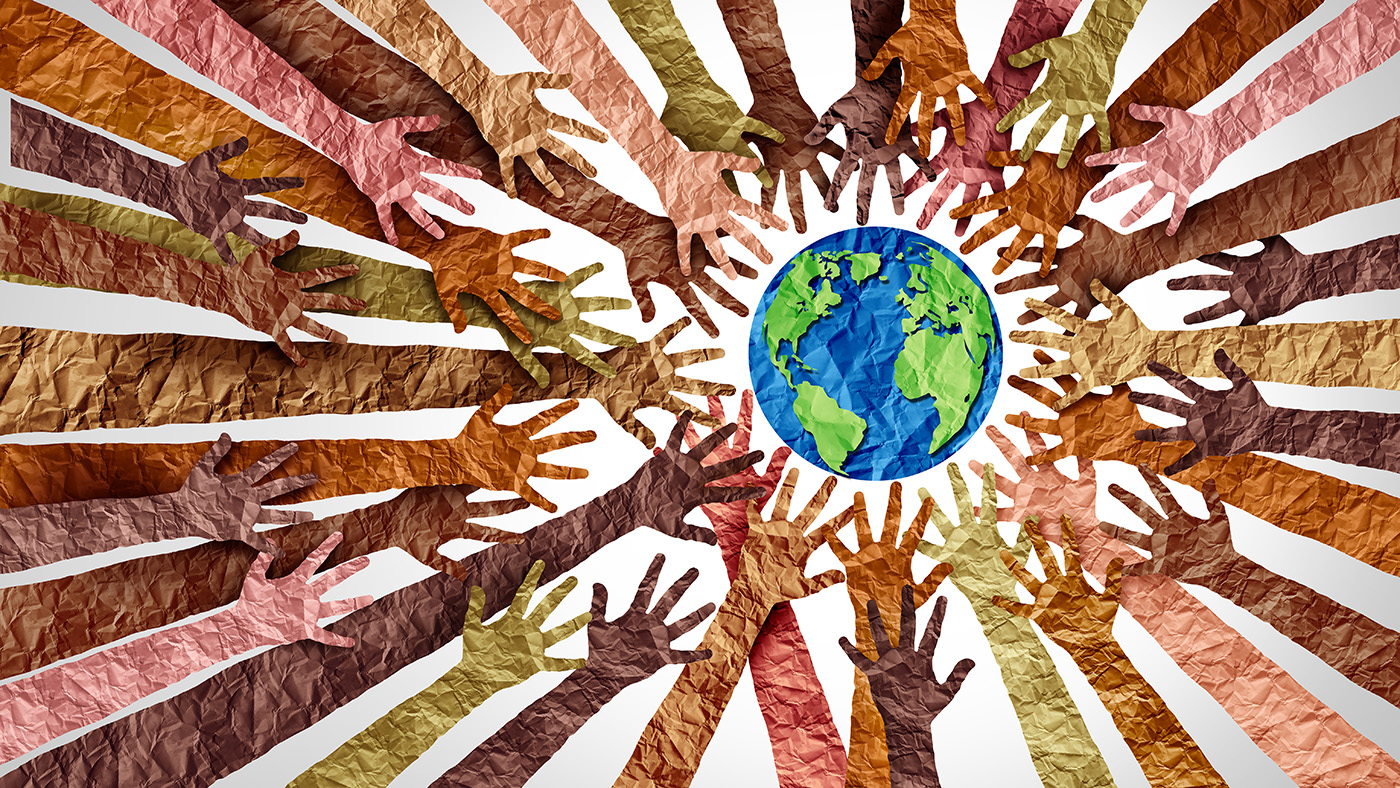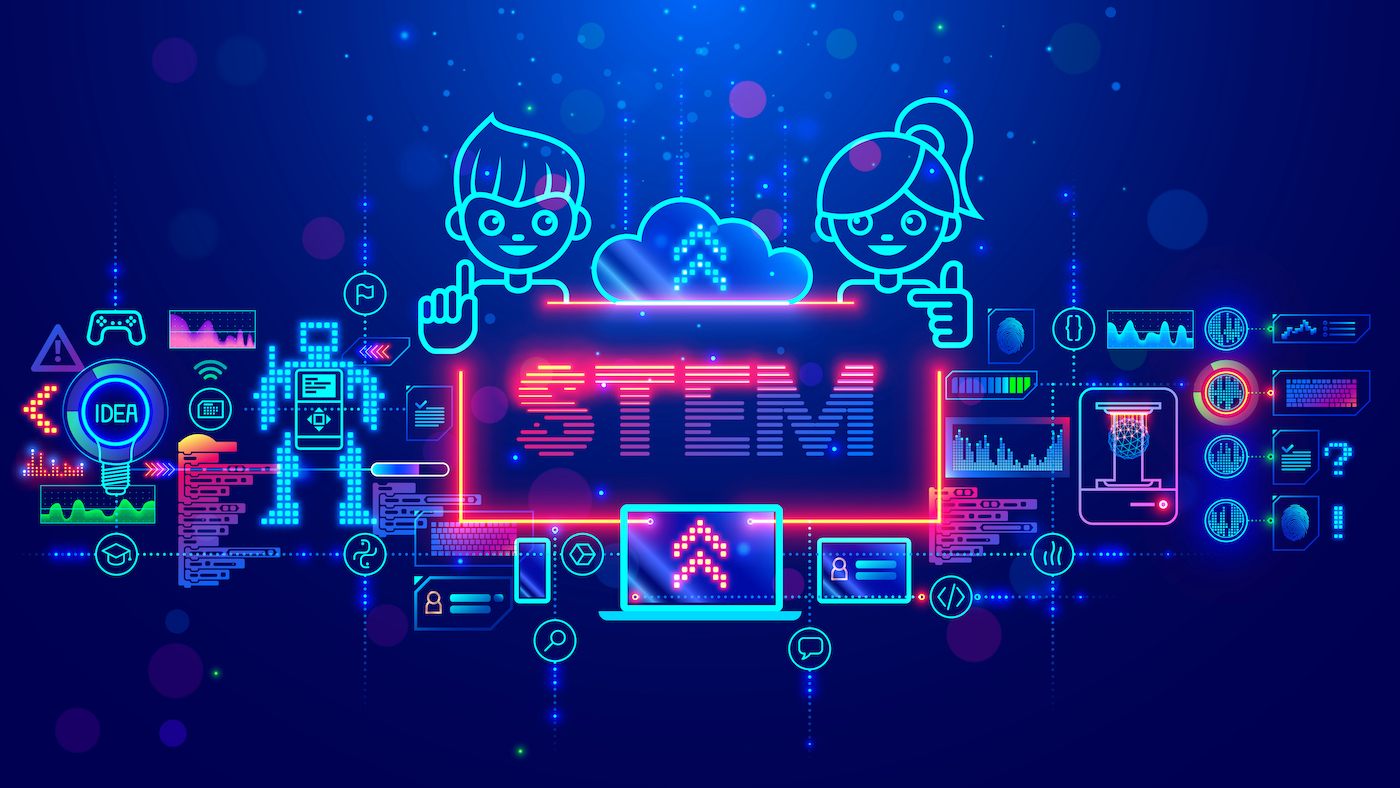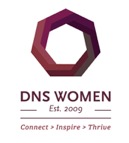Changes in Cultural Behavior Essential for Gender Equality in the Tech World
Vanda Scartezini, the co-founder of DNS Women, highlights how we need to delve deeply into cultural behavior to see as many women as men employed in tech.

© metamorworks| istockphoto.com
eco’s Lars Steffen interviewed Vanda Scartezini, the co-founder of DNS Women, at ICANN76 in Cancún, Mexico on what needs to change to increase the number of women working in tech.
Lars Steffen: Could you give us a brief description of your current role?
Vanda Scartezini: Along with my husband, we have an IT consulting company which was founded 36 years ago. I joined the company in 2003 after I left my work with the government – up until that time, I had served the Brazilian Government’s Ministry of Industry & Commerce, initially as a National Secretary of Industrial Technology and, after that, as National Secretary of Information Technology at the Ministry of Science and Technology. In subsequently entering the company with my husband, we then switched roles: In other words, while he used to be the CEO, when I arrived, I took on this position. We then adapted things somewhat to fit more to my profile, using the opportunity of my high recognition in the country.
What you can see from this is that I have a technological background. I’m an electronic engineer and I have been to so many IT areas – from telecommunication, microelectronics, instrumentation and so forth, right through to manufacturing issues. A core part of my profile therefore comprises technology and developing technology, while another aspect of my profile concerns law. Nowadays, I’m not just a CEO, but also a Chair of the Board and a Member of the Board of institutions for ICT areas.
Steffen: Looking at things from an earlier time in your life: What was your education like, particularly regarding topics such as ICT studies? Was it the case that, when you went to the university, such studies were even less common for females?
Scartezini: Absolutely: at that time, believe it or not, in my university there was no bathrooms for women! Which meant that we had time slots that we needed to fit into. There were just five women in the university. In one respect, it wasn’t too bad: It was like being the puppy of the other guys! We were all young, and some people were inclined to “take care of you.” Let’s look at it this way: I’m a short person, which means maybe I don’t seem to affect the environment too much, so they liked to look after me. I actually have a lot of friends from that time. But what was ‘funny’ is that, with some professors, they were completely against the women sitting there. But I just joked with them all the time!
Steffen: What was it that led you to be interested in technology?
Scartezini: From the time when I was very, very young, I wanted to be an engineer, and I learned very early with my siblings to write and read before the age of three. I would have liked to be like the boys; I always wanted to be something different. My grandfather – who I admittedly didn’t know so well, given that we moved early from Rio de Janeiro to Sao Paulo – was the superintendent of a telephone company, and I believe he had an influence on me. What’s more, my mother had been working for some time for the telephone company. This came down to the fact that, in Brazil, families were working because the opportunity to raise the tariff of the telephone had been cut back. This meant that the company needed to get families to work on all the international issues in order to not have the telephone system closed down. So, this was always about new things; in my family, it came down to an idea that we should do things. My family have always also been very much in favor of independence. As my mother always said: “You’ll never be dependent on a man to survive because you can never count on anyone. You need to count on yourself.” This means that we were very independent in the background for everyone, which I think is something that’s the norm for immigrant families.
Steffen: And when did you get in touch for the very first time with the Internet?
Scartezini: The first time when I used the Internet was when the BBS (namely, the Bulletin Board System) was available in Brazil, where it had kicked off at the beginning of the 1990s. Because Brazil was one of the first to place the country code for the university: namely “.br”. The telephone company responsible for international connection at the time was the Embratel part of the state group of telecommunications which started the BBS in the 90s. And we got some first emails like “vanda@embratel.br.” My husband was a very technical guy, a mathematician, and we started to work with the Internet from the beginning, since our company already worked with computers and software and presenting the Internet to the clients became also a business differential. I was always involved in technology, so it was quite interesting to see the future on Internet and what could be done.
Steffen: When did you get in touch with the DNS, with ICANN, and with ICANN's community?
Scartezini: ICANN started in ‘98 and Brazil joined in the first meeting (.br was received by Jon Postel’s hands); the country was therefore there from the beginning of the Internet. At this time, I was acting as National Secretary of IT Policy in the Federal Government and I knew that someone needed to go to the GAC group – that is, the ICANN Governmental Advisory Committee group. As I personally didn’t have the time at that point, I sent my director to the GAC; he attended for the first ICANN meeting, which meant that I then gained an insight into the GAC discussion. When the director left in 2000, I needed to join in order to have Brazil represented in GAC. In 2002, I became a vice chair of GAC – and from that time onwards, I never left ICANN. From there I went to the Board, then to ALAC, SSAC; to be part of ICANN was like being part of a new family. Nowadays, let’s be honest, I see my friends in ICANN more often than I see my own grandchildren and sons. In the beginning, GAC was very small; we visited countries and went to each other’s homes – from Australia to Canada. For those of us who have been there from the beginning, we are particularly close, because it was quite interesting to share a lot of problems we had in the GAC. And then I entered the Board, where it was even easier to talk with everybody, giving you a broader vision of this community, and you learn a lot.
Steffen: So, is it more the technology or the people that get you hooked here at ICANN?
Scartezini: Well, in the beginning it was much more technology related. Nowadays it’s a lot to do with challenges - for example, for users. Users have a lot of things they do not understand; they do not recognize who can take care of things. For example: how can they find that it is not a fake address; how can they get to understand that? One of the specific reasons I worked for the new gTLDs was to convince companies that they need their brand name as a domain, as a TLD at the end of the Internet sentence, so that people can easily recognize it belongs to your company.
Steffen: Did you promote specific gTLDs?
Scartezini: Yes, in my country, I promoted some gTLDs for the banks. Or brand names. That is quite important because, once people see that name, you often get to believe that these belong to you – for example, if the technical sentence is finished with “.br” (or the equivalent in other countries), it will be easy to change the domain to something close to that, and people will be misled. For regular people, it’s very difficult to understand how they can be protected. This means that I’ve started to pay my attention much more to those issues than the technology itself, and just on how to use the technology to protect them.
Turning now to my work with women: In the year 2009, I was in a discussion with just four other women when we realized that we’d need to bring in far more women. We were too few in that environment. As such, we developed the idea of DNS Women, which is something that has been ongoing since then. There is now a lot of women that talk with the others and who bring more women in for the meetings, for the Internet work, on how to get more women involved etc. DNS Women is now part of the ICANN Agenda.
Steffen: Does that mean that you find it important to have more gender balance and more women in ICANN?
Scartezini: Yes, this is especially important given the fact that, if there are only women or only men, the way of thinking is almost the same. There are then no counterpoints. You need the diversity to raise points, to dispute a little bit, and to find the best answer. This is the absolute fact that I believe nowadays. Balancing diversity, gender among several other diversities, like geographic, for instance, shall be our goal. It does take time to normalize this. But I believe we need to have a good way of thinking, because here there are completely different views from the masculine and the feminine perspective. But once you find the balanced way of thinking and discuss things more deeply, you can find much better answers.
Steffen: I also have connections to other parts of the Internet industry, and when I’m at ICANN meetings, I have a general feeling that there are more women here than in other parts of the industry. While this may still be far from perfect, I think you can see more women being active at ICANN – also in leadership positions – compared to other parts of the tech industry. But still, we can do a lot better here as well. And what can we do to bring more women into the tech industry in general, but also maybe to the ICANN community in particular?
Scartezini: Yes, nowadays we are reaching more balance in ICANN then in the ICT industry as a whole. But participation will depend a lot on the culture/origin of people. When you analyze European and North American cultures, compared with the Asian, African and Latin America cultures, you can see how European and North American people put themselves forward for any position. Those in the south hemisphere for instance, they wait to be invited; it’s a completely different approach. Is it the case that those big sections of the world have no self-confidence? I don’t think so. I believe it’s just cultural behavior to not put yourself in the position to push yourself forward. The concept is that you should wait to be invited. But let’s be realistic: nobody really cares enough about you; hardly anyone will invite you. This is natural. You can see this in NomCom, the ICANN Nominating Committee. I have been in NomCom for many years, and you can take that situation on board there. Candidates from North America and Europe put themselves forward. The others? No. They just say: “What do you think, am I fit for that?” When it comes to talking with women, it’s even more hard work; even in the northern hemisphere to some degree, women are less inclined to push for positions than men; however they are pushier than the women from the southern hemisphere.
Steffen: Which makes it even harder, because what we see in studies and research is that also in the Western Hemisphere, women always have to perform a little bit more or have to be better than men. But there we also still have this gender pay gap, which means that women apparently always have to perform better. And what you just described makes it even harder for them.
Scartezini: It is more difficult, particularly when you see this division of the world and the different behaviors that people have. Because it’s interesting that the behavior is something so intrinsic to the person that they don’t have the perception of what they are doing. There’s still the expectation that women shall work harder, be paid less, but I believe it is slowing changing – at least it is from what I have been seeing in my long career.
Steffen: Does this mean that, based on what we are talking about, there is the need of cultural change in certain parts of the world?
Scartezini: Yes. To bring more women on board into the likes of the tech industry in some parts of the world, we need to go deeply into cultural behavior when the ‘kids are kids.’ There are studies made for recognized companies showing that, only until 15 years old, you will learn to see mathematics as an interesting thing; after that, you’re unlikely to gain new interest.
Steffen: Given that I represent an industry association with companies and corporates behind it, I’d like to ask: what can those companies and corporates do to drive this change?
Scartezini: I have been in companies over much of my time. Of my 50 years in the industry, I spent 10 years in the government. It was a good experience because you can see things from the other side, but it’s not like you behave differently because you belong to the industry more than the government. For me to have reached high positions in the industry – in the microelectronics industry, for instance – I believe it involved that perception that you need to sell yourself, that you need to believe that you are good. From this perspective, what helped me a lot was that, when I was a very small kid, my own mother more or less said: “You are ugly, you have no chance with a man, just believe in your mind, because you are intelligent, use this!” Now, that was okay. I grew up with that and was happy to have opportunities, and to show these to others, because nobody would perceive me in any other way. So, my mind needed to be solid. I needed to sell and to have this perception that needs to be brought inside the kids. Because I have other siblings: for example, my only sister that grew up with me was a beautiful girl. Even though she was a brilliant person, she never went to top management or higher positions, because the behavior was waiting for someone to see her mind throughout the beauty of the person. Nobody in the industry is looking for a beautiful person. You want someone that does good business.
I really believe that the needs for change of cultural behavior are very important. When it comes to my kids: the majority are male, but I have two girls, one who is a pediatrician, the other who is an engineer. They are doing very well. But in the same way, they were under pressure to sell themselves. It’s quite important because, even for men, if they don’t know how to sell themselves, they don’t get there anyway.
Steffen: So, your advice to young people is to sell yourself?
Scartezini: They need that. Because, even in Europe, you can see German behavior, Portuguese behavior, south Italian behavior as being completely different, and they have completely different degrees of success in the industry.
Steffen: Is there still anything that the companies can do to help with this process?
Scartezini: The first thing is to promote the idea internally: in schools or colleges for girls or women or something equivalent. Because I have also learned in the many trainings I have done about social behavior that, particularly after the age of 15, personal issues are no longer being learnt. For example, learn technology at an early age. If you don’t teach girls to be interested in mathematics, in physics, they will never embrace such careers where STEM areas are demanded. They need to go there at an early stage.
Steffen: Is this something where schools can help?
Scartezini: Of course, the industry can put their names out there with some promotion: “Show us how you can join us in the future.” “My company does that – join this math dispute,” “Show me what you can do in the future for growing my company.” Any disputes among young women will help a lot. Because they learn to analyze themselves and they find in what issues they can be the best; they recognize that someone is more dedicated to ‘this’ or ‘that’. But if they have some tendency for mathematics, for sciences – namely for STEM issues – then they probably will have more ego to promote themselves and to understand the importance of self-promotion in that work.
Maybe you saw a study which showed that the number of women in these STEM areas was almost zero in the 1950, 1960s and their growth rate in the ‘80s grew to the top. And then afterwards, it just declined and declined. And there is no real understanding regarding this decline. I saw a lot of social studies about why women are abandoning their careers; a lot of information about women being faced with the same challenge. We have our kids. We never stop to work. There is no reason why one woman should be different from the other. Ultimately, I believe, it is about more internal things that you should look out for.
In my own studies, I did some classes in sociology that I didn’t complete, but what I learned in those classes helped me to understand better the impositions on the manufacturing industry, on the consulting companies, on the project management and so on. But side by side with that, the engineering course is naturally wonderful to prepare yourself to solve problems! For me, the best topic from the engineering course is to teach you how to face and solve problems. It’s good for business. It’s good for your life. And any problem you have, you face, you solve.
Steffen: Just one final question: When you take a look at this industry and think about the next five years into the future, how do you believe things will develop?
Scartezini: There is a lot of change when it comes to challenges, in my opinion. When looking at the next generation, the way that they understand technology is that they simply use it; they are much more dedicated to the use of technology than we have been in the past to understand how it works. While they are users, the majority are not interested in the technology itself. And I see this as a challenge for progress moving forward. Education of the people needs a rethinking of how to attract people to not only use, but to understand technology and try to improve it. I have great-grandchildren and, even in their mothers’ laps, they have their mobile phones. They’re users, but we need them to have interest in understanding and changing the technology.
I believe that the future of the whole technology area will depend a lot on how artificial intelligence might be able to substitute people’s work when it comes to more boring fields. For me, for instance, I was involved in integrating circuit designs; the concept is hard to achieve but the physical work, even with a help of a software, is quite boring. You just got to cut and paste this kind of circuit ‘here’ and put it ‘there’. Artificial intelligence could make things better. This means that, when it comes to depend on the repetition, we shouldn’t need to train people for that; in other words, we need to train people to understand how to do things better using the technology. This means that education needs to be adapted more quickly. Internationally, I can see that people are learning the same theories. While this shared concept is important, the exercise needs to change completely. I believe the world is too slow in changing kids’ knowledge that will really help them in the future. And, at the same time, the advance of some technology is going faster and faster, in the hands of people that have learned to change technology. But the new generation are not yet there, or are not even yet prepared for that.
Vanda Scartezini is a partner and General Manager at POLO Consultores Associados and is also head of the ICANN DNS Women initiative. Having studied electronic engineering, management specialization, and 3 board courses (US + BR), her subsequent career spans more than 40 years in high management positions in the ICT field, in both the public and private sectors. In her country, Brazil, Vanda acted twice as National Secretary for Technology and Information Technology as well as the President of the Brazilian Patent Office, with her positions including the Federal and SP State Government. Vanda has been a highly active participant at ICANN for 22 years, with her roles including GAC vice chair, member and liaison at the ICANN Board, member and vice chair of the ALAC At-Large Community, SSAC, and member and chair at NomCom. At ICANN, she is also responsible for the creation of the Fellowship Program and DNS Women.
Lars Steffen is Director International at eco – Association of the Internet Industry (international.eco.de), the largest Internet industry association in Europe. At eco, he coordinates all international activities of the association and takes care of the members from the domain name industry.
Please note: The opinions expressed in Industry Insights published by dotmagazine are the author’s or interview partner’s own and do not necessarily reflect the view of the publisher, eco – Association of the Internet Industry.











